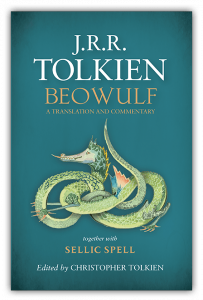A couple of weeks ago we revealed LOTRProject’s new interactive map of Middle-earth — complete with key dates, events and character movements for events of the Second Age and Third Age.
Now Emil Johannson has reached back into the events of the Elder Days of Middle-earth’s history, creating a similar interactive map that depicts the key events of the elves’ war against Morgoth on a map of Beleriand. Continue reading “Explore this great interactive map of lost Beleriand”
If you have a Tolkien/Middle-earth inspired poem you’d like to share, then send it to poetry@theonering.net. One poem per person may be submitted each month. Please make sure to proofread your work before sending it in. TheOneRing.net is not responsible for poems posting with spelling or grammatical errors.
Posted in:
Share:


As soon as you open your copy of The Silmarillion, you are faced with what is perhaps the most difficult chapter in all of the book.
Have you ever tried to image how the scene of the Music of the Ainur and the vision of the world, would unfold?
How is Tolkien’s highly-complex imagination perceived by you?
The following post presents a three-minute video with one fan’s outlook towards the Ainulindalë.
________________________________________________________________________
– Comprehending and Conceptualizing the Ainulindalë in the real world
Ever read Dante Alighieri’s La Vita Nuova?
That passion. That love. All the emotions in just a few cleverly-constructed sentences.
Transform that text into music and you get Patrick Cassidy’s Vide Cor Meum; and you might just start to comprehend what the Music of the Ainur may have sounded like.
No discords of Melkor. At first.
Just all the Ainur signing in unison before the seat of Ilúvatar – the glory, the majesty, love and subtleties of nostalgia.
[Read More]
Posted in:
Share:

 There’s a lot of excitement floating round academic communities for J.R.R. Tolkien’s forthcoming Beowulf translation (which you can pre-order here) where the prevailing buzz seems to be “best thing since slices bread”. Here, writer Mabel Slattery outlines why.
There’s a lot of excitement floating round academic communities for J.R.R. Tolkien’s forthcoming Beowulf translation (which you can pre-order here) where the prevailing buzz seems to be “best thing since slices bread”. Here, writer Mabel Slattery outlines why.
EDIT: There is an error of fact within the article. Michael Drout did not actually re-discover Tolkien’s Beowulf translation.
I did not “discover” the Beowulf translation, not even in the sense that I found it in the Bodleian Library. This claim is a conflation of a story about one manuscript with information about a totally different text.
The real story is not quite as exciting.
You can read Drout’s explanation in full here.
Don’t forget to click the link to read the full article. Continue reading “Why Tolkien’s Beowulf translation is one of the best things to happen to literature”
If you have a Tolkien/Middle-earth inspired poem you’d like to share, then send it to poetry@theonering.net. One poem per person may be submitted each month. Please make sure to proofread your work before sending it in. TheOneRing.net is not responsible for poems posting with spelling or grammatical errors.
Posted in:
Share:

 Apparently there is some confusion floating around about Michael Drout’s involvement in the forthcoming publication of J.R.R. Tolkien’s Beowulf translation by Chris Tolkien.
Apparently there is some confusion floating around about Michael Drout’s involvement in the forthcoming publication of J.R.R. Tolkien’s Beowulf translation by Chris Tolkien.
(Beowulf: A Translation and Commentary will be published on May 22. You can pre-order your hardcover copy now from Amazon by going here .) Continue reading “Michael Drout talks about J.R.R Tolkien’s soon-to-be-published Beowulf translation”
.) Continue reading “Michael Drout talks about J.R.R Tolkien’s soon-to-be-published Beowulf translation”
If you have a Tolkien/Middle-earth inspired poem you’d like to share, then send it to poetry@theonering.net. One poem per person may be submitted each month. Please make sure to proofread your work before sending it in. TheOneRing.net is not responsible for poems posting with spelling or grammatical errors.
Posted in:
Share:

 Tolkien scholar John Garth previews the forthcoming publication of J.R.R. Tolkien’s translation of Beowulf and outlines why the Professor’s expertise with the Anglo-Saxon epic means this new book is to be highly anticipated. Click through the read more link at the bottom to access the complete essay.
Tolkien scholar John Garth previews the forthcoming publication of J.R.R. Tolkien’s translation of Beowulf and outlines why the Professor’s expertise with the Anglo-Saxon epic means this new book is to be highly anticipated. Click through the read more link at the bottom to access the complete essay.
Continue reading “JRR Tolkien’s Beowulf translation: bring on the monsters”
If you have a Tolkien/Middle-earth inspired poem you’d like to share, then send it to poetry@theonering.net. One poem per person may be submitted each month. Please make sure to proofread your work before sending it in. TheOneRing.net is not responsible for poems posting with spelling or grammatical errors.
Posted in:
Share:

 Following on from staffer Kili’s post, here’s the official word from UK publisher Harper Collins on the upcoming release of Tolkien’s translation of Beowulf. The Harper Collins article contains comment from Tolkien’s son, Christopher, on how he has gathered, along side his father’s translation of the Old English poem, text from lectures given at Oxford by J R R Tolkien. These show his fascination for Beowulf, Grendel and, in particular, the lure and power of treasure – which of course we see reflected in The Hobbit, in Thorin’s struggles against, as Richard Armitage has called it, ‘gold lust’.
Following on from staffer Kili’s post, here’s the official word from UK publisher Harper Collins on the upcoming release of Tolkien’s translation of Beowulf. The Harper Collins article contains comment from Tolkien’s son, Christopher, on how he has gathered, along side his father’s translation of the Old English poem, text from lectures given at Oxford by J R R Tolkien. These show his fascination for Beowulf, Grendel and, in particular, the lure and power of treasure – which of course we see reflected in The Hobbit, in Thorin’s struggles against, as Richard Armitage has called it, ‘gold lust’.
This new publication will also contain Sellic Spell, ‘a story written by Tolkien suggesting what might have been the form and style of an Old English folk-tale of Beowulf, in which there was no association with the “historical legends” of the Northern kingdoms.’ This further insight into Tolkien’s desire to create English native myth, unadulterated by Norse or Germanic legends, is an exciting prospect. Fans of Tolkien, of Anglo-Saxon, and of legendary battles, will be able to get their hands on this edition of Beowulf from 22nd May.
Read the full article from Harper Collins here, and the Houghton Mifflin Harcourt (US Publisher) version here.
Posted in:
Share:





 There’s a lot of excitement floating round academic communities for J.R.R. Tolkien’s forthcoming Beowulf translation (
There’s a lot of excitement floating round academic communities for J.R.R. Tolkien’s forthcoming Beowulf translation (